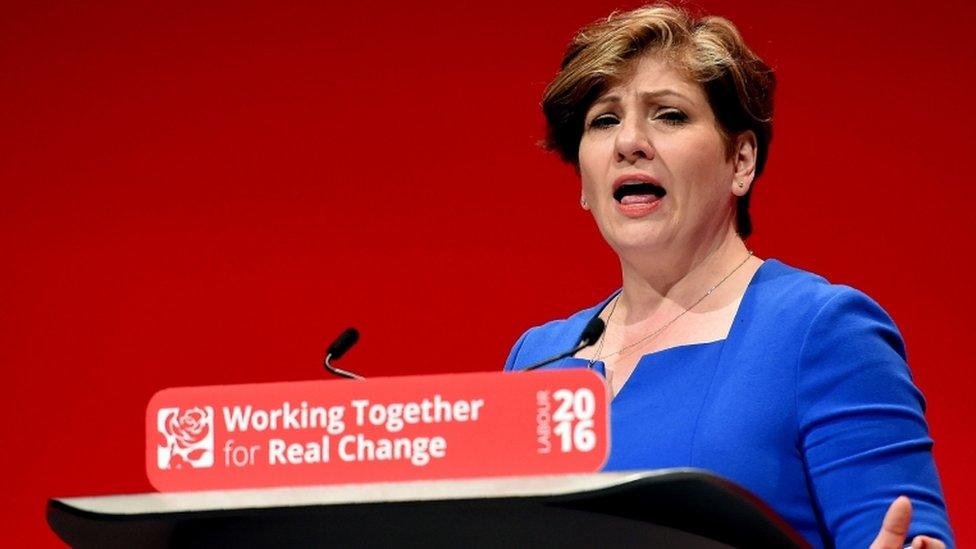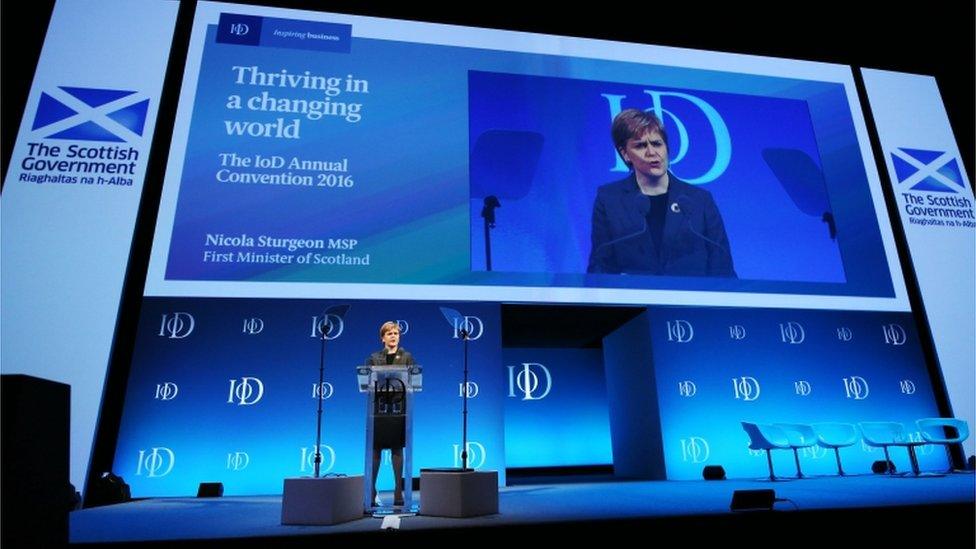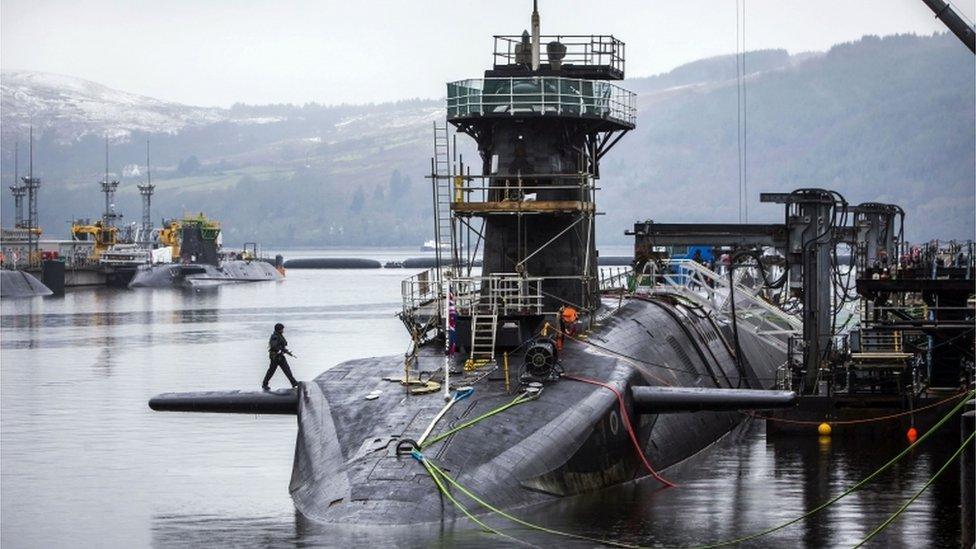Labour 'would talk to SNP' about Brexit
- Published

Ms Thornberry admitted she did not know how the Scottish Labour devolution proposals would work in practice
Labour's shadow Brexit minister has said she would be "more than happy" to talk to the SNP about how best to keep the UK in the European single market.
Emily Thornberry said continued access to the single market should be a priority for the UK.
But she said she was not interested in forming any kind of pact with Nicola Sturgeon's party over the issue.
Ms Sturgeon has said that single market membership is the "most obvious consensus position" to work towards.
Ms Thornberry, who is also Labour's shadow foreign secretary, was speaking to the BBC's Good Morning Scotland programme from the party's conference in Liverpool.
She was asked whether she would consider forming an alliance with the SNP in an attempt to ensure the UK remains in the single market.
Ms Thornberry responded: "I'd be more than happy to talk to them about it. I think that the most important thing about our negotiations is that the government understands that as far as people are concerned nobody voted for anybody to lose their job."
But Ms Thornberry went on to stress: "I am not talking about a pact, but I am certainly happy to talk to them.
"I think it is absolutely vital for the UK interest that we get the best deal possible in terms of leaving the European Union but having a good ongoing relationship with the European Union."
A spokesman for Michael Russell, the Scottish government's Brexit secretary, said he would be "happy to meet with Emily Thornberry to discuss how we can maximise efforts to keep the UK in the single market".
He added: "The Tory manifesto contained an unequivocal pledge to remain in the single market, and they should be held to that promise."

First Minister Nicola Sturgeon gave a major speech on the implications of Brexit in London on Tuesday
On Tuesday, the conference approved proposals to give Scottish Labour a seat on the UK party's governing body, the National Executive Council (NEC), as well as the ability to set its own policies in all areas, including reserved matters.
But Ms Thornberry openly admitted she did not know what would happen if Scottish Labour wanted to oppose Trident ahead of a general election, but the UK party wanted the nuclear weapons to be retained on the Clyde.
She said: "I don't know what the answer to that is. I don't know what we would do. We would need to sit down and we would need to have a good think about it and we would need to debate it through.
"But the important issue is that the Scottish Labour party be able to develop policies which are appropriate to Scotland, but also consistent with Labour values."
Labour's only MP in Scotland, Ian Murray, told BBC Scotland on Monday that the new measures would give Scottish Labour "full autonomy", but suggested that it could still effectively be overruled by the UK party on reserved issues such as Trident.
Scottish Labour currently opposes Trident - although its leader, Kezia Dugdale, supports renewing it.
The UK party remains in favour of renewing the nuclear weapons system - a position not shared by Mr Corbyn, who is due to address the conference later on Wednesday.

Analysis by Laura Kuenssberg, BBC political editor

Trident remains a contentious issue for Labour
One of the reasons Jeremy Corbyn is so lauded by his supporters is his life long objection to nuclear weapons. The way he has stuck to that principle has won him the respect and admiration of many.
But even though he is the Labour leader, the party's policy is still to back the renewal of the British nuclear deterrent, Trident.
His attempts to reverse that since he has been in the job have not worked, and indeed, yesterday, the shadow defence secretary told the conference that the party shouldn't keep going back to the issue, saying Labour shouldn't keeping "picking the scab" over such a divisive issue.
But it's clear Mr Corbyn hasn't given up. He told me he was "sure" it would be raised in future, and he wanted to continue to "make the case" for scrapping them.
Mr Corbyn also suggested that if he was prime minister he might call off UK air strikes on so-called Islamic State.
For his supporters, it is Mr Corbyn's commitment to his principles that is so appealing. For his detractors, it's stubbornness that sows division.